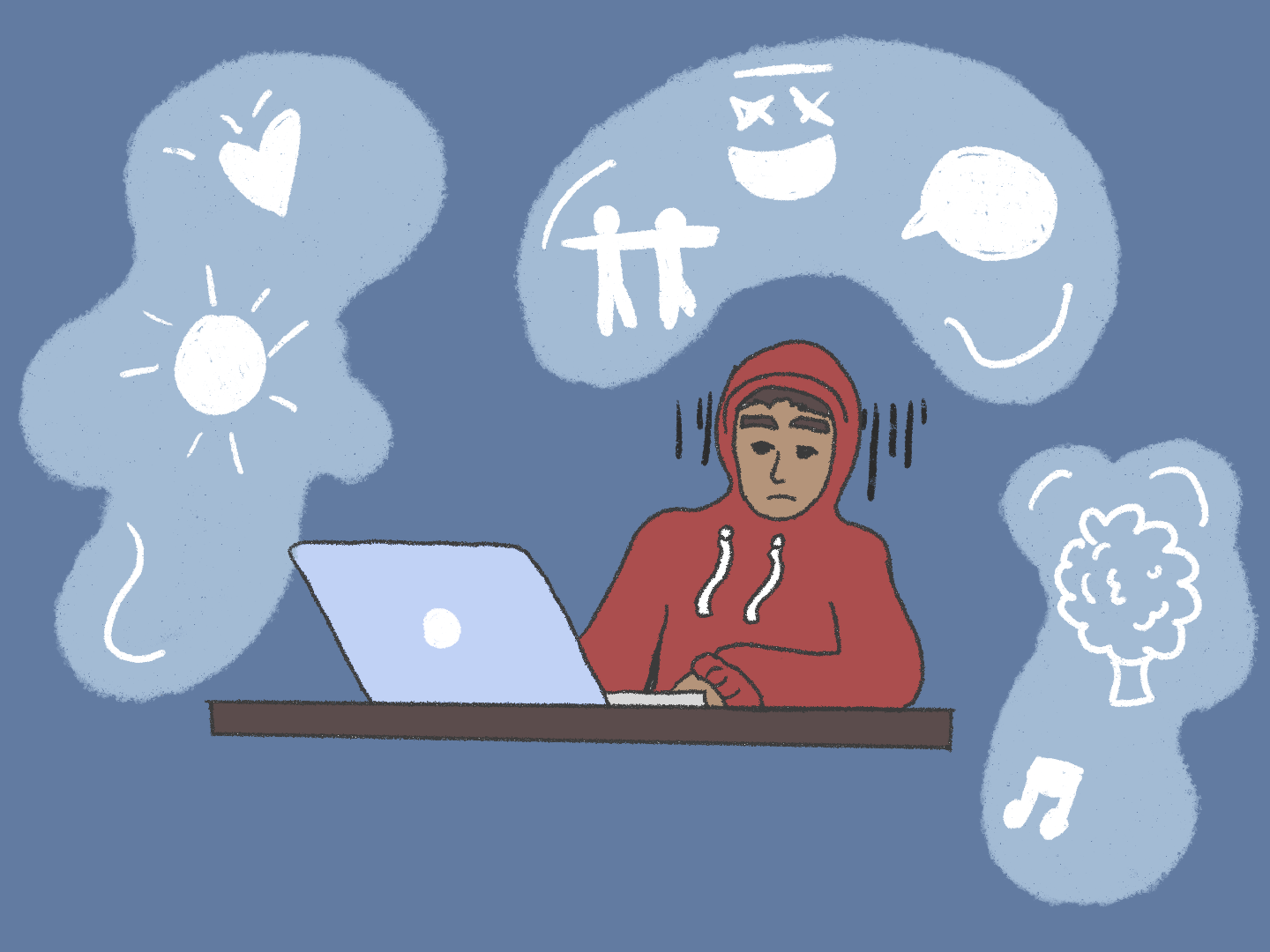College Students Are as Bad as iPad Kids
Whether I’m in the library, SCDI or Lucas, it feels like students are constantly huddled behind laptops or smartphones. I even notice this in Dowd (the visual art building)–how ironic. I don’t blame them; it's hard not to be on our devices. In the past 10 years, the world has embraced seemingly just one thing: technology.
Research on the impact of screen time on young adult brains is limited but growing. The more screen time we spend on our smartphones, the less attention we can give to genuine face-to-face connections with peers, especially as college students and young adults.
A study by Dr. James Roberts at Baylor estimated that college students spend a severe average of eight to ten hours per day using a smartphone or other form of technology.
Diego Acevedo
These statistics don’t surprise me. While I try my best to stay grounded by implementing habits like enjoying my morning coffee without an Instagram scroll, eating a balanced diet and working out when possible, my screen time racks up regardless. It is simply inevitable for college students, despite the “healthy habits” we try to implement.
Education has become dependent on online resources through platforms like Google Office, Excel, Canvas and the long list of softwares that different majors require, and a majority of our social lives consist of sending Instagram reels and playing video games. Now, the new college lifestyle is concentrated on an 8-by-10-inch screen.
During the most mundane activities, like waiting in line for a sandwich at Benson, students are glued to their phones, missing the details around them. This loss is significant. Connecting with one another in the “in between” moments of everyday life on campus is important. When we turn off our screens and hear about each other's favorite (or not so favorite) professors, the meal you cheffed up with your roommate last night or sharing what's really pushing your buttons on any given day is more valuable to our college experience than whatever can be found on our screens.
These moments remind me that I’m not just here to go from point A to point B and graduate with a degree. I’m here to learn from other people, not just my phone or laptop, and grow from different perspectives that are best understood from in-person conversations. And while there are some entertaining TikTok influencers behind my screen, we can’t really learn effectively unless we’re face-to-face with someone.
Two years ago, we were taking classes on Zoom and having FaceTime dates with our significant others. We know firsthand that we experience connection with others during the “in-between” moments, and that life behind a screen is isolating and less fulfilling. So, why don’t we practice what we know? Are you afraid to put yourself out there in fear of being judged? Or scared to admit what pushes your buttons in case no one else relates? Me too. But that makes it all the more important to look beyond the fears that hold us back so that we can be embraced for who we are.
And, let’s face it, technology is not leaving our education or social lives. But we must make the intentional choice to look up from our phones and notice the little things around us more often. After all, what you’ll remember from college is not the chemistry equation you spent all night memorizing for your natural science credit, but rather the moments when you stepped out of your comfort zone and got to know someone new standing next to you in line at the bookstore.
There have been plenty of days this quarter when I’ve felt exhausted. Without the energy to strike up a conversation with the person next to me, scrolling on my phone sounds like a pretty attractive option. But I’ve never regretted asking someone how their day is going, what they did over the weekend or if they have a dog at home.
So, if you’re not feeling as connected to your dorm floor, research partner or even your best friend as you would like, maybe put your phone down for 30 minutes and see what can happen.
